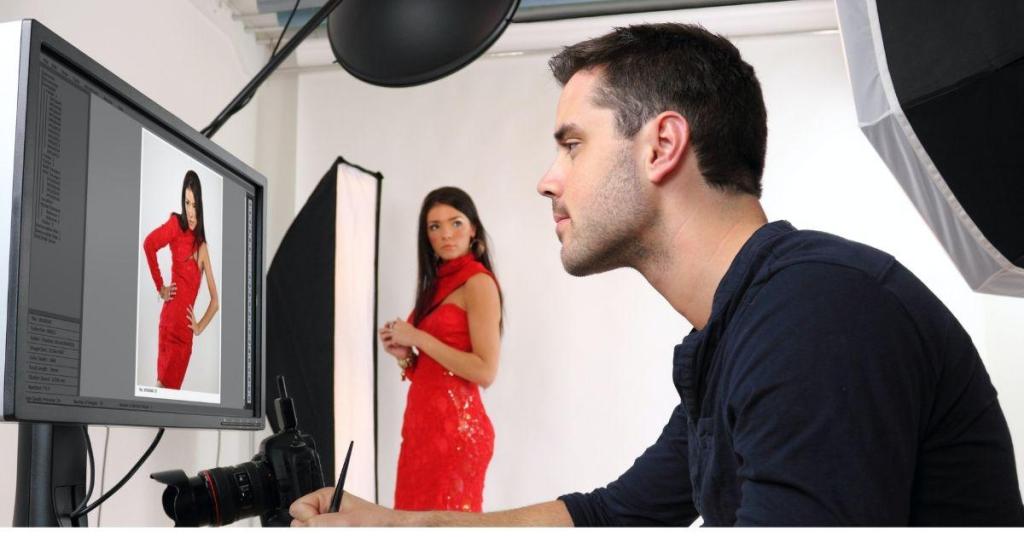The age of Instagram and the ubiquitousness of photo editing tools that can completely change the way you look—on a screen, at least—have made body image issues even trickier to navigate than they already were. While “perfect” model bodies used to be the Photoshopped domain of magazines and print ads, now anyone with a smartphone can manipulate their image to be more or less curvy, lean, muscular—whatever the “in” body type is at any given moment.
The problem is that young people see such images and then look in the mirror. Faced with the reality of a human body in all of its normal imperfections, it’s easy to feel down on what you look like, especially when it doesn’t match the (highly edited) ideal version of a human body your favorite influencer shares in her Insta feed.
At least one country is taking action on the issue in an attempt to assuage some of the damage such comparisons can cause. Norway has passed legislation that requires content creators to disclose when they’ve edited a photo. The addition to its existing Marketing Act states that any photo in which “a body’s shape, size or skin has been changed by retouching or other manipulation” must be marked as edited. The reasoning behind the law is that undisclosed photo editing “plays on social insecurity, bad conscience, low self-esteem or contributes to body pressure.”
According to The Hill, the law applies to advertisers as well as social media influencers and content creators.
The issue is definitely real. BBC reports that the majority of kids under 18 said in a UK survey that social media images were “extremely influential” on their body image. Only 5% of them said they wouldn’t consider dieting or getting surgery to change their appearance. Other research has found that social media can be a positive influence on body image when people post body-positivity-oriented content, but most social media influence has a negative effect on body image.
All of this isn’t surprising. But as much as Norway’s requirement to disclose photo edits seems like a move in the right direction, it’s not going to do much to solve the real problem.
I think most people, even young people, know that social media photos have been edited. It’s not like it’s a big secret anymore. If you are on Instagram, you know that people have put automatic filters on their photos or adjusted the exposure, brightness, contrast, etc. to create the most pleasing image. That’s literally the way the app is used by almost everyone.
Filters and lighting adjustments aren’t new, and they’re not the real problem. Professional portrait photographers manipulate lighting and use filters all the time to make people look their best. We’ve all taken photos in bad lighting and wondered, “Yeesh, is that really what I look like?” No, it’s not. Cameras don’t capture exactly what our eyes perceive and the wrong lighting can make us look unnaturally bad. Adjusting lighting before and/or after taking a photo can actually give us a more true-to-life image, as long as it’s not overdone.
Photoshopping bodies, though? That’s a whole other story. Literally adding or taking away skin or fat to change a body shape should be noted. Making someone’s eyes bigger or nose smaller or lips fuller—not to make the image look more like how they really look, but to create an unrealistic ideal—is worth disclosing. But even not all Photoshopping is bad. I’m not bothered if someone uses Photoshop to remove a big ol’ zit from their face, for example, but I do care if they erase part of their cheek to make their face look slimmer. Blemishes happen, but they are temporary. They’re not part of how you really look. But changing the shape of your face or body? That’s what creates unrealistic expectations and body image issues when someone looks in the mirror.
Some might argue that makeup can do many of the same things photo editing can do and can also lead people to unrealistic beauty standards, though. So should makeup be disclosed too? Do we really expect people to only show raw, bare-skinned, no-make-up photos of themselves to be considered authentic? I don’t think so, but the line for what needs to be disclosed is definitely a bit fuzzy.
Still, I don’t think the issue is that people don’t know that images are manipulated on social media. I think the real issue is the normalization of following influencers who constantly share photos of themselves all the time in the first place. For instance, the Kardashians have nearly a billion Instagram followers between them, and almost all they post are selfies in various states of undress. I don’t think disclosing that their photos are edited would do anything to change the impact accounts like that have on their followers.
What we really need to do is teach young people that their value and worth aren’t to be found in what they look like, either in real life or on social media. And neither is anyone else’s, even if they’ve made millions off of their image as their “brand.” Find your worth in what you’re contributing that’s making the world a better place, not in how many compliments your social media images get.
We also need to teach kids to analyze their own habits when it comes to who they choose to follow: If you’re following people who share selfies to get attention or likes or beauty praise, why? What purpose does that serve? Is it actually serving you in any way other than to make you wish you looked different? Are there actually inspiring influencers who are making a real difference in the world that you could follow instead?
Norway’s law might make a powerful statement, but I don’t think it will solve the problem it’s attempting to address. Appreciate the attempt to tackle body image issues, but the real problem goes deeper than any law or photo editing disclosure can go.





























